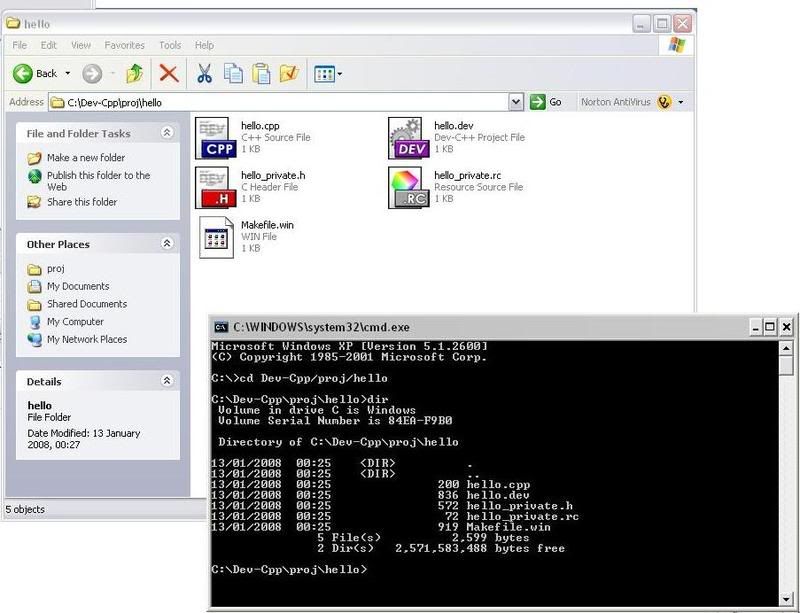Dev C++ If Command
The switch statement in C++ is a control statement that is useful in a limited number of cases. The switch statement resembles a compound if statement by including a number of different possibilities rather than a single test:
Sep 25, 2019 The things we type into the command line are called commands, and they always execute some machine code stored somewhere on your computer. Sometimes this machine code is a built-in Linux command, sometimes it's an app, sometimes it's some code that you wrote yourself. Occasionally, we'll want to run one command right after another. Jan 25, 2018 how to use dev c for c dev c tutorial for beginners program dev c hello world dev c codes for games dev c codes list how to use dev c pdf source. Dev-C is a free IDE for Windows that uses either MinGW or TDM-GCC as underlying compiler. Originally released by Bloodshed Software, but abandoned in 2006, it has recently been forked by Orwell, including a choice of more recent compilers. The statement that begins with if constexpr is known as the constexpr if statement. In a constexpr if statement, the value of condition must be a contextually converted constant expression of type bool. If the value is true, then statement-false is discarded (if present), otherwise, statement-true is discarded.
The if statement allows you to control if a program enters a section of code or not based on whether a given condition is true or false. One of the important functions of the if statement is that it allows the program to select an action based upon the user's input. For example, by using an if statement to check. Download and install Dev C. Now that you have Dev C installed, run Dev C and select File → New → Source File. (We don't need to create an entire project at this point.) Cut and paste the example code into the window and the select File → Save As. Dev-C is a full-featured Integrated Development Environment (IDE) for the C/C programming language. It uses Mingw port of GCC (GNU Compiler Collection) as its compiler.

The value of expression must be an integer (int, long, or char). The case values must be constants.
As of the ‘14 standard, they can also be a constant expression.
Dev C++ Programming Manual
When the switch statement is encountered, the expression is evaluated and compared to the various case constants. Control branches to the case that matches. If none of the cases match, control passes to the default clause.
Dev C++ Manual
Consider the following example code snippet:
Once again, the switch statement has an equivalent; in this case, multiple if statements. However, when there are more than two or three cases, the switch structure is easier to understand.
Dev C++ If Else Example

The break statements are necessary to exit the switch command. Without the break statements, control falls through from one case to the next. (Look out below!)